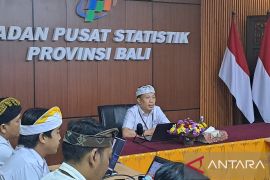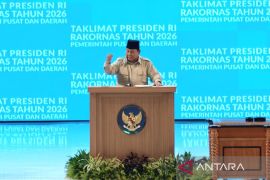“The fatherless phenomenon should certainly be a collective consideration to ensure that Indonesian children can grow well and have a strong character," Infants and Children Family Guidance Director at BKKBN Irma Ardiana said when contacted here on Friday.
According to the book Fatherless America: Confronting Our Most Urgent Social Problem written by David Blankenhorn (1995), children who grow up in a family without a father figure can trigger social complications, she added.
These include criminality, domestic violence, and teenage pregnancy.
Children who grow up without a father may experience mental and emotional problems, have difficulty interacting with their peers, and be affected by health issues such as psychosomatic, physical, emotional, and sexual violence.
When they reach adolescence, they tend to smoke and drink alcohol, try forbidden drugs that affect their learning and may even lead to their expulsion from schools, and they are also likely to get married at a very young age.
She also highlighted the social experiment The Fatherless Family: CIVITAS-The Institute for the Study of Civil Society conducted by Rebecca O'Neill (2002).
The experiment showed that the social problems that may occur due to the fatherless phenomenon include high criminality and violence, the development of a divorce culture, and increasing burden on social security, she added.
According to the National Survey of Sexual Attitudes and Lifestyles, the lack of a father figure can cause children under the age of 16 to enter into sexual relations.
"Men have a higher tendency to carry out sexual relations, namely 1.8 times higher and women 1.5 times higher compared to children that are taken care of by both their parents," Ardiana informed.
"O'Neill also said that the risk of divorce in (members of) a family without a father is 1.9 times higher for men and 1.5 times higher for women compared to children who grow up in a complete family," she said.
To maintain family resiliency and prevent the fatherless phenomenon, BKKBN has created the Planning Generation program as a platform for teenagers to improve their life skills in developing households.
The program seeks to help ensure that couples have a proper husband-wife relationship and family life, which requires thorough preparation and planning.
The program also promotes the maturation of marriage age as one of the measures to ensure that Indonesian children do not marry before they turn 19.
Through this, they are expected to prepare themselves better mentally, physically, and materially before deciding to get married.
Any couple, even a fertile age couple with children, can participate in the parenting classes held online and offline by the agency on the implementation of the eight functions of a family and their roles sharing in parenting.
Related news: BKKBN highlights 3 population issues, handling efforts at UN meeting
Related news: Look after reproductive health to maintain HR quality: BKKBN
Translator: Hreeloita D S, Fadhli Ruhman
Editor: Rahmad Nasution
Copyright © ANTARA 2023











